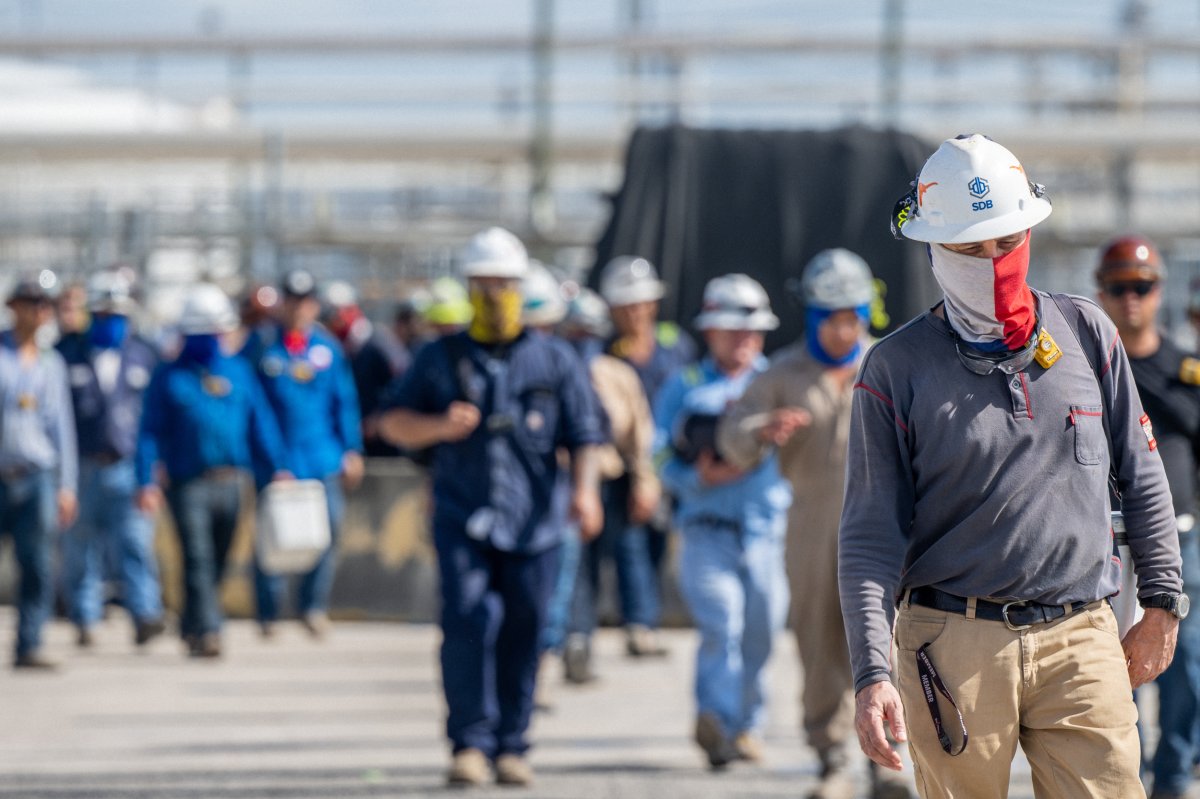When John Bayer got the call that the Marathon Martinez oil refinery was shutting down, he was sound asleep after his graveyard shift at the facility, where he worked a union job as a health, safety and emergency response resource. For John, the phone call did more than wake him up after a night of hard work. As an employee at the Marathon refinery for nearly two decades and as the sole provider for his wife and two kids, it shook the foundation of his life and career.
John was just one of nearly 350 workers represented by United Steelworkers Local 5, the union I lead, who lost their jobs when the Marathon refinery shut down in October 2020. John's story echoes that of thousands of oil and other workers across the country who are facing an uncertain future amid the changing energy landscape.
To be clear: In California and across the country, working people support addressing climate change and transitioning to renewable energy. But when refineries like the former Marathon facility shut down without a clear plan in place that involves unions from the outset, workers and the community inevitably get left behind.
In order to guarantee that California has an economy that works for everybody, impacted workers must be at the center of planning for the ongoing transition to clean energy, and they must have access to union jobs that guarantee financial security, strong protections, and good benefits.

A new, first-of-its-kind report from UC Berkeley paints in vivid detail the challenges former Marathon refinery workers have faced in the years since they lost their jobs and provides numerous examples of worker-centered solutions for the future. Drawing on a survey of 140 former Marathon workers and nearly two dozen interviews, the study finds the laid off workers faced significant financial strain, mental health challenges, and difficulty securing high-quality, union jobs in the aftermath of the refinery shutdown.
Specifically, the study finds that while three out of four former Marathon workers eventually found new work, they made a median $12 an hour less than prior to their layoff. For John, it was an even bigger hit: He applied for 50 jobs and got two interviews, eventually deciding to accept a job offer despite a pay cut of $50,000 a year. Having just sold his car to make ends meet and out of fear he would soon need to sell his home, it was the decision he had to make for his family.
The report also found that only 43 percent of the former Marathon refinery workers held union jobs after the closure. Through 100 years of labor representation, the Marathon Martinez workers created a safe work environment with good pay, retirement security, benefits and more. They had achieved a decent living, which afforded our members the ability to buy homes, send their kids to college, and save for the future.
Oil and gas jobs didn't start out as good jobs; through a century of organizing and persistence, our union and our fellow unions made them good jobs. Because of the strength of our union, refinery workers in the Bay Area built power in the workplace that sustained good, career jobs for generations.
But the security of that union career was lost for most workers in the aftermath of the layoffs, and it is in jeopardy for many more workers across the country in coming years.
We must ensure that the transition to clean energy has workers, their unions, and their communities in the driver's seat. Oil and gas workers are highly skilled, hard-working experts who have so much to offer in emerging clean industries. These workers, and every worker staring down a rapidly shifting economy, need public policy that creates and sustains good, union jobs with family-sustaining wages and strong benefits. They also need financial support as they move into new jobs.
Our communities cannot be left behind in this transition. The closure of a facility hurts workers in connected businesses, can be a significant hit to the city and county tax base, and can leave residents in an ongoing legacy of a polluted environment if proper remediation plans and funds aren't in place.
I think about how all this would have helped John transition after the plant closure. With the strength of a union behind him in his new job, John and his fellow workers would be able to advocate for higher wages, better benefits, and safer working conditions. And with financial support, John would have been able to keep looking for stronger employment opportunities without fear of losing his family home.
This fight isn't about just one job. It's about protecting the thousands of workers facing unemployment, a decrease in workplace safety, lower wages, inadequate benefits, and a loss of their voice on the job as our nation transitions to clean energy.
It's about putting workers and their unions and communities at the center of any conversation about the future of our economy. It's about reigniting the union movement that our fathers, mothers and grandparents built to secure our futures, and doing the same to sustain the next generation.
Elected officials have a responsibility to grow good, union jobs and implement worker and community-focused support systems to see us through the coming changes. A successful transition to clean energy cannot happen without us.
Tracy Scott is the President of United Steelworkers (USW) Local 5.
The views expressed in this article are the writer's own.
Uncommon Knowledge
Newsweek is committed to challenging conventional wisdom and finding connections in the search for common ground.
Newsweek is committed to challenging conventional wisdom and finding connections in the search for common ground.
About the writer
To read how Newsweek uses AI as a newsroom tool, Click here.








